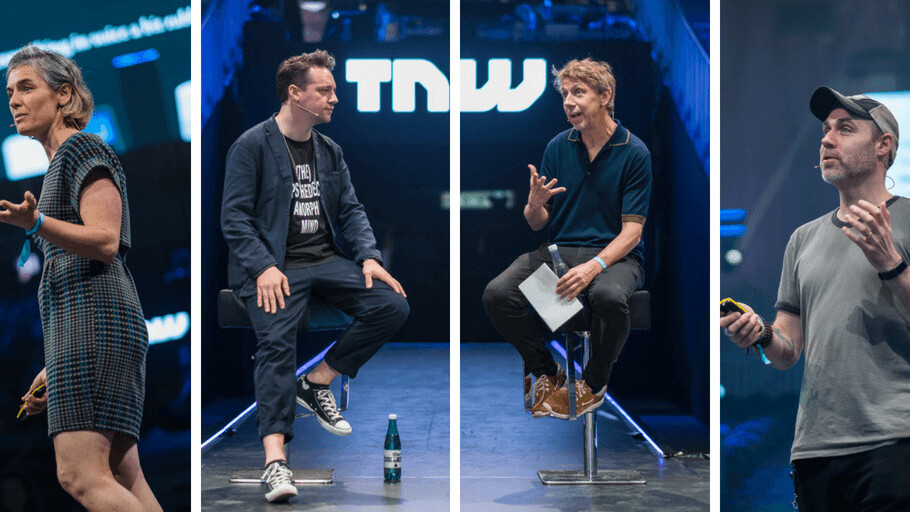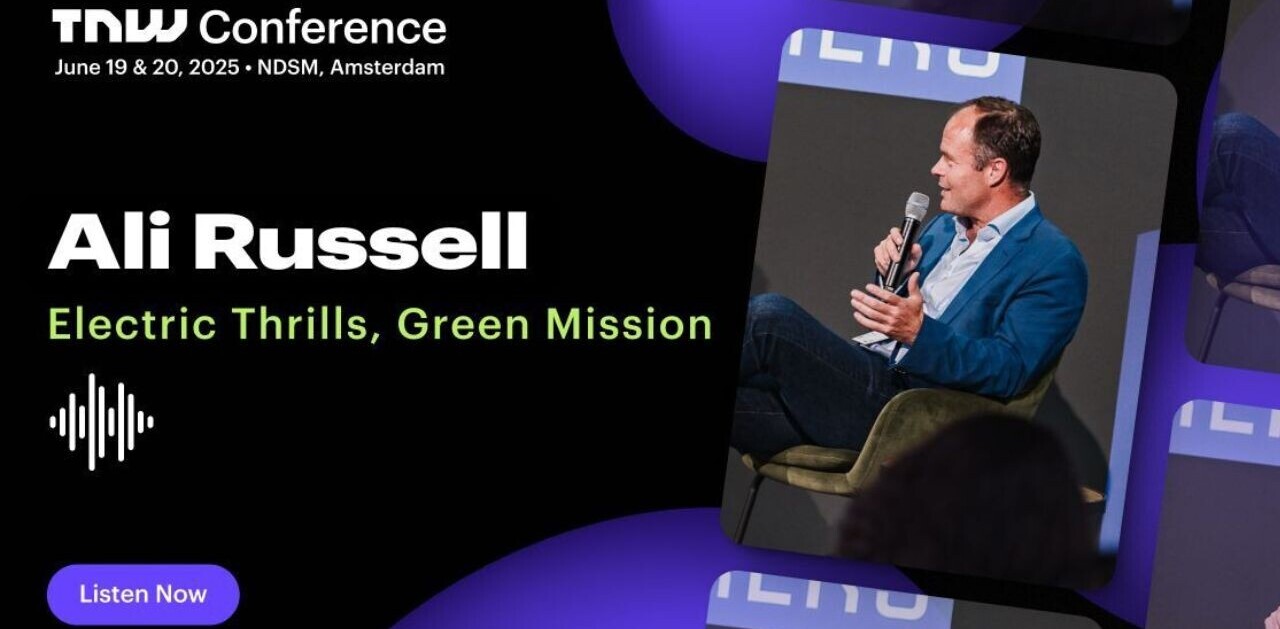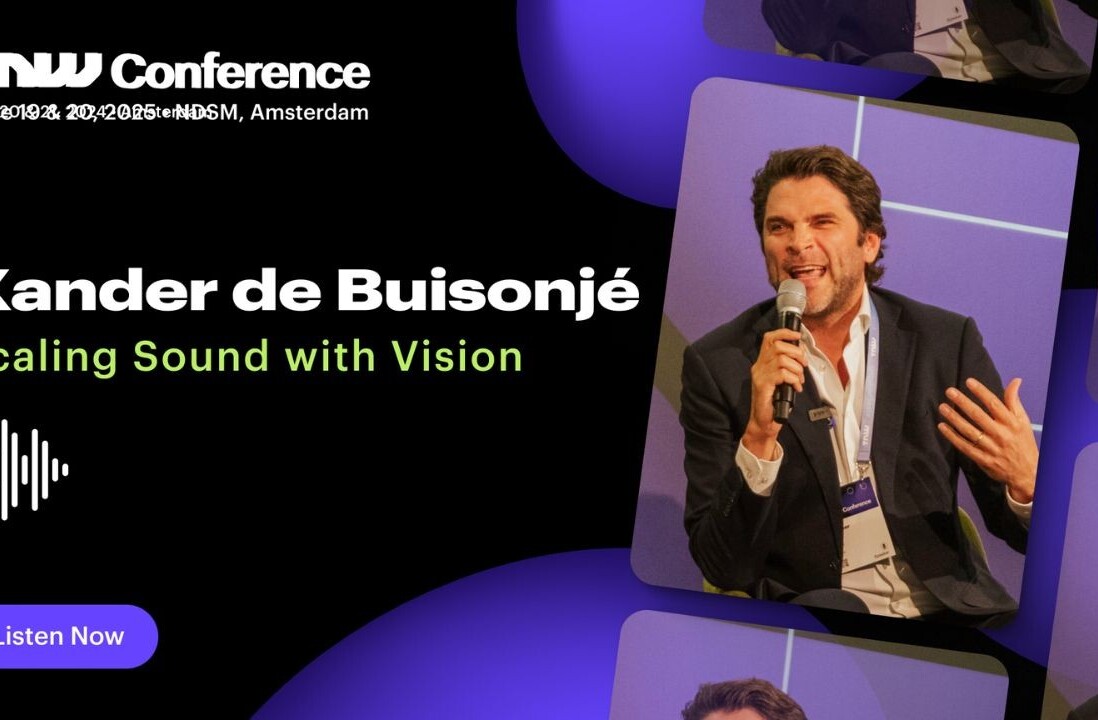Some claim that we’re in the ‘golden age’ of music, with more accessibility than ever before. But what happens next? With technology like blockchain creeping into the picture, how do we ensure that we stay golden?
At the Music Summit track at TNW Conference, our lineup of musicians shared their take on the industry’s future. We’ve recapped the highlights:
Benji Rogers, CEO of dotBlockchain Music
Benji discussed the future of blockchain and cryptocurrency in the music industry, stating that while “99 percent of coins and tokens are bullshit, 1 percent of these ideas are absolutely game changing.”
He sees the problems of blockchain — mainly scalability and adoption — as challenges, rather than showstoppers. According to Benji, there are two separate music industries: the business of making music (artists producing), and the business of music (consumers buying).
While everyone seems to think that artists are unhappy with the money they make, Benji claims that it’s simply not true:
Artists are not getting screwed by unfair payments from Spotify or Apple. Streaming is a way, but it doesn’t have to be the way — if you’re not happy earning $100,000 from 25 million streams, don’t go there. Go somewhere else.
He went on to explain that artists are earning a decent amount, but they’re upset that evil corporations are the gatekeepers of the industry. That’s where blockchain can come in — by ensuring that there’s an easy way to see who owns what.
To me, the thing that blockchain will solve is that there’s no protocol for the media. We have a protocol for the internet, but not music. No one’s using the same file type across the industry, and no one keeps the same records of who owns the music. By standardizing the system through blockchain, we can all be on the same page.
Benji goes on to explain the technical aspects of how this would work. He ended with an inspiring message to his audience:
Creators who can digitally encode their rights into their media will control their own destinies. There’s one thing stronger than all the armies in the world, and that’s an idea whose time has finally come.
You can hear more about how blockchain will revolutionize the music industry by watching his full talk above.
Nicky Birch, Executive Producer at BBC R&D
Nicky explored the future of AI voice interfaces and music. She explained to the audience that AI isn’t capable of having big discussions with us yet, and while that’s a limitation, it’s the reality of where technology is right now.
While we could continue to scream at Alexa for saying sorry a million times, we could also focus on the positives:
Is this really the way we want to talk to our machines? Considering the fact that soon we’ll reach the singularity, it’s probably not wise. Maybe I’m being a sci-fi drama queen, but it’s a bit scary. In my naïve way, I think having a genuine, two-way dialogue would be great. That’s what I aim to do at BBC.
The limitations of AI technology can be a source of creativity, according to Nicky. She urged the crowd to embrace the constraints and work around them, or project them ten years into the future to begin prototyping for when technology allows for greater things.
She gave some great examples of how to do this, including a game that BBC R&D developed. She ended with a great call to action:
It won’t be mainstream but it stretches the capabilities, and one day it might very well be the future we accomplish. That’s why it’s important to prototype the future you want, right now. Create moments of joy and wonder for the next few years.
You can watch her full talk above.
Gilles Peterson with Young Marco, DJs
Gilles Peterson, British DJ and record label owner, interviewed Dutch DJ Young Marco, to understand the psychology of DJing. Both have built prominent careers in the music industry, and they came together to discuss the ups and downs.
Gilles pointed out that listeners’ tastes were getting more sophisticated, and were more willing to dance to ambience. He asked Young Marco how he balances the audience’s tastes to his own:
You can go as far out as you want with music, you just have to find where it lands. The whole thing about DJing is that you have to learn how to cope with failure and expectations. I’ve got it down to a fine science now, where I can tease them just enough and take it back to where they’re comfortable. That keeps it fun, for me at least.
They also discussed how Young Marco exclusively listens to records, rather than files. “I process music the way I grew up processing it,” he explained to Gilles. They discussed Young Marco’s favourite record shops in Amsterdam: Rush Hour, Red Light, and Vintage Voodoo got a nice shoutout. At Red Light, they even put aside records for Young Marco that they think he’ll enjoy.
This led to the question of why there are so many great Dutch DJs, to which Young Marco replied:
In a way, Dutch people have kind of an identity crisis. They take bits of cultures without claiming them. We had a head start in open-mindedness in Amsterdam, which we’ve now turned into an art form.
It was clear that Young Marco wasn’t used to the spotlight in an interview setting. It spoke to the psychology of DJing in its own sense, as some DJs prefer to express themselves through music rather than words. It added a layer of authenticity to the interview, which was appreciated.
You can watch the full talk above.
But wait… there’s more!
We also heard from some other amazing musicians at the Music Summit track. You can watch their talks right here!
Get the TNW newsletter
Get the most important tech news in your inbox each week.






